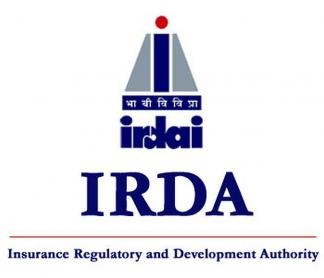After Nitin Gadkari, union minister, Ministry for Road Transport and Highways, launched two basic level Surety Bonds, in Dec 2022, issued by Bajaj Allianz General Insurance with the support of reinsurance support from Munich Re and Swiss Re, the Surety Bond market in India hasn’t moved at all due to technical and financial impediments
Leading FRBs have said they have designed Surety Bond products for the Indian market but buyers are not prepared to pay the adequate premiums and provide collaterals for the policy without which nobody can sell Surety Bonds
New Delhi:
As a market for Surety Bonds has failed to take off miserably even after myriad of efforts over last three years, insurance regulator IRDAI has once again convened an urgent meeting of CEOs of general insurance companies, GIC Re and foreign reinsurance branches(FRBs) in New Delhi on Monday to resolve the technical and financial logjam over kickstarting a Surety Bond market.
Industry and trade representative body CII is coordinating the second meeting on Surety Bond at India Habitat Centre which will be addressed by IRDAI Chairman Debasish Panda and Rakesh Joshi,member(Finance & Investment), IRDAI .
Last week, the Department of Financial Services had called a meeting of CEOs and IRDAI officials in New Delhi on the same issue.
After Nitin Gadkari, union minister, Ministry for Road Transport and Highways(Morth), launched two basic level Surety Bonds(Bid Bonds), in Dec 2022, issued by Bajaj Allianz General Insurance with the support of reinsurance support from Munich Re and Swiss Re, the Surety Bond market in India hasn’t moved at all due to set of technical and financial impediments.
“It has taken almost three years to get IRDAI’s approvals for Surety Bond product. We have sorted out a lot of technicalities which will make constructing road projects less risky that make Surety Bond a safe and profitable business for insurers. The Surety Bond will also help contractors to have financial closure of their projects without depending upon only bank guarantees,’’ Gadkari had said while launching the first two Surety Bond products last year.
He is still pursuing the matter with the Department of Financial Services(DFS).
Rajendra Kumar, member, National Highway Authority of d India(NHAI), said the Monday meeting is expected to develop clarity on products and premiums that will help NHAI to make use of Surety bonds.
Though, some of the leading general insurers New India Assurance , ICICI Lombard General Insurance, SBI General Insurance and Bajaj Allianz General Insurance have announced their plans to issue Surety Bonds in recent months, nobody has been able to do so due to lack of supporting elements.
Leading FRBs have said they have designed Surety Bond products for the Indian market but buyers are not prepared to pay the adequate premium and provide collateral for the policy without which nobody can sell Surety Bonds.
Surety Bonds need extensive reinsurance support and no primary insurers can issue any policy without proper reinsurance back up.
“There are expectation in the Indian market that Surety Bonds should be cheaper than cost of bank guarantee which no way can happen. If we undercut banks on pricing – then we are ending in a situation which would really be unsustainable for us,’’ said FRB sources.
Apart from pricing, there is also no clarity on reinsurance options due to current provisions around indemnity document. Indian Contract Act and Insolvency and Bankruptcy code does not recognize rights of Insurers at par with financial creditors yet and thus insurance companies do not have recourse to recovery like banks in case of any default, said industry sources.
In India, the issuer of Surety bonds should be in a position to legally enforce tripartite contracts that guarantee compliance, payment and/or performance, added the sources.
Surety Bonds are a type of insurance policy protecting parties involved in a transaction or contract from potential financial losses due to a breach of contract or other types of non-performance. The issuing insurer provides guarantee, for a premium, in case of a default in execution of a project. They serve as a risk mitigation tool for maintaining integrity, quality, and adherence to contractual terms, ultimately contributing to the smooth functioning of projects especially in infrastructure sector and fostering a healthy business environment.
It was expected that the Indian Surety Insurance business will assist in developing an alternative to bank guarantees for construction projects. This would have enable the efficient use of working capital and reduce the requirement of collateral to be provided by construction companies.

